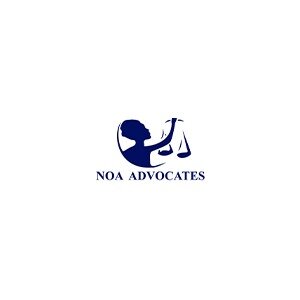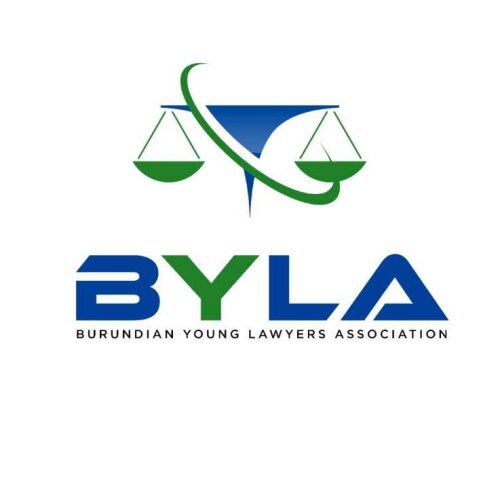Best Renewable & Alternative Energy Lawyers in Burundi
Share your needs with us, get contacted by law firms.
Free. Takes 2 min.
Or refine your search by selecting a city:
List of the best lawyers in Burundi
About Renewable & Alternative Energy Law in Burundi
Renewable and alternative energy refers to energy generated from natural resources that are constantly replenished, such as solar, wind, hydro, biomass, and geothermal sources. In Burundi, the push for renewable energy is motivated by the need to expand electricity access, reduce reliance on imported fossil fuels, and promote environmental sustainability. The government of Burundi, alongside international organizations, has initiated several projects to harness the country’s abundant renewable energy potential, especially in solar and hydropower. As the sector grows, the legal landscape surrounding energy development, investment, and regulation becomes increasingly important for individuals and businesses involved in these projects.
Why You May Need a Lawyer
Legal guidance is crucial in navigating the renewable and alternative energy sector in Burundi. You may need a lawyer in the following situations:
- Setting up a renewable energy business or project and navigating regulatory approvals
- Negotiating and drafting power purchase agreements or contracts with public or private entities
- Complying with environmental and land-use regulations for new energy installations
- Understanding incentives, tax exemptions, and benefits provided by the government for renewable projects
- Resolving disputes related to construction, supply, or operation of renewable energy infrastructure
- Protecting intellectual property related to renewable energy technologies
- Dealing with cross-border investments and international partnerships in energy development
- Ensuring compliance with evolving energy policies and permits
Local Laws Overview
Burundi’s legal framework for renewable and alternative energy primarily consists of sector-specific laws, national energy policies, and environmental statutes. Key aspects include:
- Investment Promotion: The Burundi Investment Code encourages investment in energy and may offer special incentives for renewable energy projects.
- Licensing and Regulation: The Ministry of Hydraulics, Energy, and Mines oversees the granting of licenses and compliance checks for energy operations. Projects require permits for construction, production, and distribution.
- Environmental Impact: Energy projects must comply with environmental assessment procedures under the National Environment Law. These reports assess the project’s sustainability and community impact.
- Land Use: Land acquisition and usage for energy projects are subject to property law, and may involve negotiations with private landholders or government authorities.
- Grid Access and Tariffs: The Burundi national utility (REGIDESO) manages the transmission and distribution grid. Regulations protect the interests of energy producers regarding grid access, connection agreements, and feed-in tariffs where applicable.
- International Agreements: Burundi is party to several regional agreements on energy cooperation, such as the East African Community treaties, which can influence cross-border projects.
Frequently Asked Questions
What types of renewable energy are most common in Burundi?
The most common forms are hydroelectric and solar energy. There is also growing interest in biomass and wind, but hydropower projects dominate due to the country’s many rivers.
Do I need a permit to operate a renewable energy business in Burundi?
Yes, you need permits or licenses from the Ministry of Hydraulics, Energy, and Mines. The exact permits depend on your project’s size and type.
What incentives exist for renewable energy investors in Burundi?
The government offers incentives such as tax exemptions, import duty reductions on equipment, and investment guarantees to encourage renewable energy development.
How do I obtain land for a renewable energy project?
You must follow the legal procedures for land acquisition which may involve purchase, lease, or concession agreements with the government or private landowners, while ensuring compliance with land and environmental laws.
What is an environmental impact assessment and is it required?
An environmental impact assessment is a study to measure the potential effects of a project on the environment. It is a mandatory requirement before project approval.
Who regulates electricity prices and grid access in Burundi?
REGIDESO, the national utility, regulates electricity distribution, grid access, and tariffs, under the supervision of the Ministry of Hydraulics, Energy, and Mines.
Can foreign companies invest in renewable energy in Burundi?
Yes, foreign investment is allowed and encouraged, subject to compliance with local laws and regulations.
How are disputes in renewable energy projects resolved?
Disputes may be resolved through negotiation, mediation, arbitration, or litigation in accordance with local laws or contractual agreements.
What role do local communities play in renewable energy projects?
Local communities must be consulted as part of the environmental and social impact assessments, and benefits or compensations may be provided as part of project agreements.
Is off-grid renewable energy legal and supported in Burundi?
Yes, off-grid solutions like solar home systems are legal and actively promoted to improve rural electrification rates.
Additional Resources
If you require more information or assistance, consider reaching out to the following resources:
- Ministry of Hydraulics, Energy, and Mines - the key government body for energy policy, regulation, and licensing
- REGIDESO - Burundi’s national electric utility company, in charge of grid operations
- Burundi Investment Promotion Authority - for investment procedures and incentives
- National Environment Agency - for environmental assessment procedures
- East African Community Energy Sector initiatives - for cross-border and regional policy guidelines
- Local and international law firms with expertise in energy law
- Non-governmental organizations involved in renewable energy and sustainable development
- Development partners such as the World Bank and African Development Bank which support renewable energy projects in Burundi
Next Steps
If you need legal advice or assistance with a renewable and alternative energy matter in Burundi, consider the following steps:
- Define your project goals and identify the specific legal issue or decision point
- Gather all relevant documents, including contracts, permits, business plans, or correspondence with government authorities
- Contact a lawyer or legal advisor experienced in energy law in Burundi for an initial consultation
- Prepare your questions and clarify your objectives to make the most of your legal consultation
- Discuss possible strategies for compliance, investment, dispute resolution, or partnership agreements with your lawyer
- Follow up with the necessary government agencies or regulatory bodies as recommended by your legal advisor
Taking timely legal advice ensures compliance with local laws, secures your investments, and helps prevent costly disputes. Always seek reputable legal support before proceeding with energy projects in Burundi.
Lawzana helps you find the best lawyers and law firms in Burundi through a curated and pre-screened list of qualified legal professionals. Our platform offers rankings and detailed profiles of attorneys and law firms, allowing you to compare based on practice areas, including Renewable & Alternative Energy, experience, and client feedback.
Each profile includes a description of the firm's areas of practice, client reviews, team members and partners, year of establishment, spoken languages, office locations, contact information, social media presence, and any published articles or resources. Most firms on our platform speak English and are experienced in both local and international legal matters.
Get a quote from top-rated law firms in Burundi — quickly, securely, and without unnecessary hassle.
Disclaimer:
The information provided on this page is for general informational purposes only and does not constitute legal advice. While we strive to ensure the accuracy and relevance of the content, legal information may change over time, and interpretations of the law can vary. You should always consult with a qualified legal professional for advice specific to your situation.
We disclaim all liability for actions taken or not taken based on the content of this page. If you believe any information is incorrect or outdated, please contact us, and we will review and update it where appropriate.
Browse renewable & alternative energy law firms by city in Burundi
Refine your search by selecting a city.











